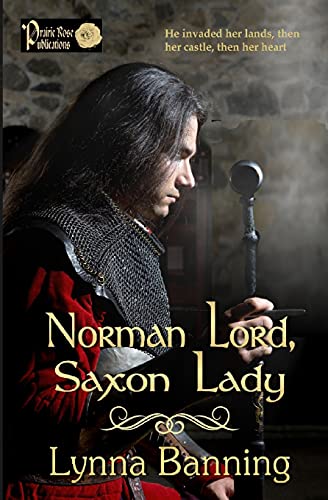Norman Lord, Saxon Lady
In late summer 1067, Saxon earl’s daughter Edra meets the forbidding Norman knight Alain de Chalus, who has been granted her father’s estate of Belven. Alain needs Edra’s cooperation to learn about his new estate, and working together leads to cautious trust and admiration. Then Alain’s wife moves in, and Edra faces the prospect of marrying a stranger and leaving her home—and Alain.
Edra’s Saxon world doesn’t feel precisely imagined; the halls are laid out like Norman keeps already, one character waffles between a baron and a duke, and the observance of Beltane has a very Celtic feel. Belven’s villagers face starvation when their wheat fields burn, apparently unable to fish, trap game or fowl, or trade goods at local markets. However, the snippets of Old French and Old English add enjoyable flavor to the language, and the characters are appealing. Spirited Edra defies male command, even when she is abducted by a neighboring knight, and sensitive Alain respects his marriage vows though he burns for Edra. With smooth prose, brisk pacing, and believable obstacles, this enjoyable romance achieves a happy ending that feels well-earned.










